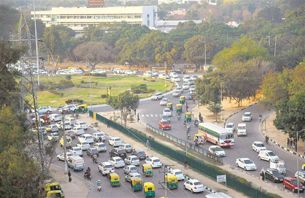BY Satya Prakash
Amid continued face-offs between the executive and the judiciary over appointment of judges, there have been too many developments on the issue in the last one month, with stakeholders voicing their respective concern.
First, questioning inordinate delay in appointment of Justice Akil Kureshi as Chief Justice of a High Court, the Supreme Court said last month that appointment and transfer of judges were pivotal to administration of justice. “Appointments and transfers go to the root of the administration of justice and where judicial review is severely restricted. Interference in system of administration of justice does not augur well for the institution,” a Bench headed by Chief Justice of India Ranjan Gogoi said.
Law Minister Ravi Shankar Prasad attacked the 2015 verdict of the Supreme Court which declared the National Judicial Appointments Commission (NJAC) Act unconstitutional and restored the collegium system under which judges appoint judges.
“I have very, very strong reservations at the flawed logic given in the judgment... The government has accepted and respects the judgment,” Prasad said during a book launch. Criticising the SC verdict striking down the NJAC Act which gave some say to the executive in appointment of judges in the higher judiciary, Prasad termed the logic given in the verdict “patently flawed”. Even before the collegium system came into being in 1993 through a judicial verdict, good judges were appointed, he said earlier this month.
Third, former SC judge Madan B Lokur wrote an article in a newspaper accusing the Centre of undermining the collegium. “It seems to me that the unconstitutional NJAC is rearing its head and is now Frankenstein’s monster. The advice of the two eminent persons postulated by the NJAC is no longer required,” Justice Lokur wrote.
Fourth, the Supreme Court took up a petition seeking review of its verdicts that created the collegium system. A nine-judge Bench headed by the CJI conducted an in-chamber hearing on petitions seeking review of the Supreme Court Advocates-on-Record Association versus Union of India (1993) verdict which created the collegium system that undermines authority of the Executive in appointment judges to the top court and high courts.
Petitioner National Lawyers Campaign for Judicial Reforms and Transparency wanted an open court hearing on restoration of the pre-1993 constitutional position that gave a better say to the Executive in judicial appointments.
Though the decision of the Bench was yet to be known, the move has caused a bit of a flutter in judicial circles.
Delivered by a nine-Judge Bench, the 1993 verdict was confirmed by another nine-judge Bench in 1998 after the President referred the issue to the Supreme Court invoking the court’s advisory jurisdiction.
On the face of it, all these developments appear unrelated. But it seems there is some move on the issue of streamlining judicial appointments. If the nine-judge Bench decides that its verdicts delivered in the 1990s need a re-look, it will have to refer the issue to an 11-judge Bench.
Often termed an extra-constitutional system, the collegium system is not provided for in Articles 124 and 217 of the Constitution under which the President has power to appoint judges of the Supreme Court and High Courts in “consultation” with the CJI. But the top court’s verdicts of the 1990s interpreted “consultation” meant “concurrence” of the CJI, resulting into end of the executive’s primacy in judicial appointments.
Unlike the collegium —which has only judges on the selection panel — the NJAC Act was supposed to be a six-member body having Chief Justice of India as its Chairperson, two other senior most judges of top court, two eminent persons and Union Law Minister. But an SC Bench declared NJAC Act unconstitutional, saying the presence of the Law Minister would compromise on the independence of judiciary. The verdict was criticised on the ground that it should have been given a chance. The latest developments in the top court indicate that perhaps there’s a realisation in the judiciary to this effect.



























